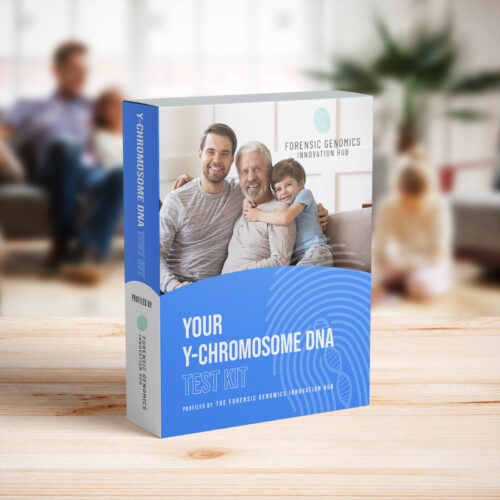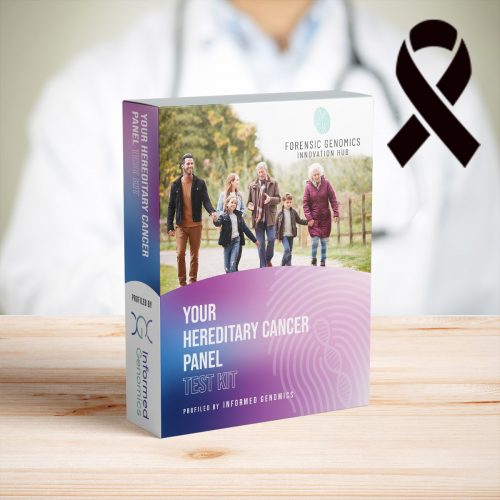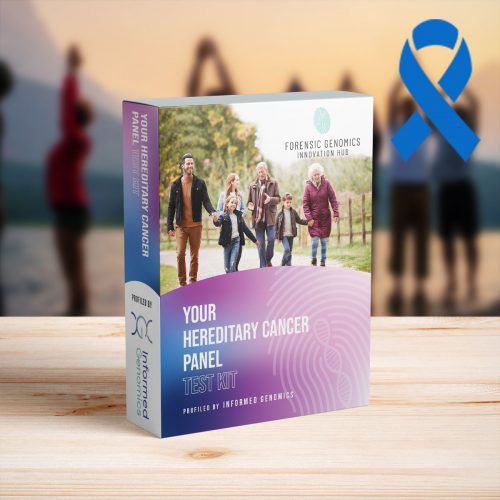
The Impact of Pharmacogenomic Testing in Mental Health Prescribing
Mental health affect millions of people worldwide. Pharmacogenomic testing represents a significant advancement in personalised medicine, particularly in the area of mental health.

With 1 in 2 people in the UK developing some form of cancer in their lifetime many people want to know if there is anything they can do to minimise that risk (www.nhs.uk/conditions/cancer). A commonly asked question is, “is cancer a genetic disease”? Simply put, YES, cancer is a genetic disease. It is caused by changes in our genes that control the way cells grow and multiply. Genes are small stretches of DNA, which we inherit from our parents. They determine a lot about how we grow and develop from the moment we are conceived and throughout our lives.
When there are harmful changes (known as pathogenic variants) in certain genes this can lead to an increased risk of a particular cancer. Sometimes a harmful change occurs to a gene within an individual cell due to something in our environment, aging or other factors. This is called sporadic cancer and is the most common cause of cancer. It may also be caused by a pathogenic variant that has been passed down from one generation to the next. This is referred to as hereditary cancer. Between 5 – 10% of cancers are thought to be hereditary.
A genetic change in our DNA that increases the risk of cancer can be inherited from parent to child. This is because the DNA change is present in a parent’s egg or sperm cells when we are conceived. Breast cancer is a common example of this. Specific genetic changes in the genes BRCA1 or BRCA2 passed from parent to child result in the child having a much higher risk of developing breast and several other cancers. Discovery of mutations in these genes has improved screening and treatment decisions for breast and ovarian cancers. It is important to understand that inheriting a cancer-related genetic change doesn’t mean you will definitely get cancer. It means that your risk of getting cancer is increased.
5-10% of all cancers are caused by hereditary (inherited) genetic changes in our DNA. In some cases where a faulty gene is inherited a person may develop cancer at an early age or have other non-cancer health disorders. For a healthy cell to turn cancerous at least one DNA change has to occur. People who have inherited a cancer-related genetic variant need fewer additional changes to develop cancer, putting them at higher risk.
Familial adenomatous polyposis (FAP) is a family cancer syndrome caused by specific changes in the APC gene that are inherited from parent to child. Someone with FAP has a very high chance of developing colorectal cancer at an early age and is also at risk of developing other kinds of cancer.
Lynch syndrome, often called hereditary nonpolyposis colorectal cancer (HNPCC), is an inherited disorder that increases the risk of many types of cancer, particularly cancers of the colon (large intestine) and rectum. People with Lynch syndrome also have an increased risk of cancers of the stomach, small intestine, liver, gallbladder ducts, urinary tract, brain, and skin. Additionally, women with this disorder have a high risk of cancer of the ovaries and lining of the uterus (endometrial cancer). Women with Lynch syndrome have a higher overall risk of developing cancer than men with the condition because of these cancers of the female reproductive system. In individuals with Lynch syndrome who develop cancer, the cancer typically occurs in their forties or fifties. Other cancers with specific genetic variants strongly linked to family cancer syndromes include breast, ovarian, prostate, melanoma and pancreatic cancers.
Note that not all cancers which may appear to be inherited, with close relatives suffering from a similar cancer, are actually caused by an inherited faulty gene. It can be that the similar living environment or habits, such as family members who smoke, may cause the same kind of cancer to develop among families, simply from exposure to the smoke. It may even be that numerous family members develop the same cancer just by chance. Cancer can also run in a family if family members have a combination of genetic changes, which together have a very small cancer risk.
There are DNA tests that can show if you’ve inherited a genetic change that increases your risk of cancer. Non-invasive and pain free tests can be conducted from cells from inside the mouth or in our saliva. By understanding hereditary cancer risk, proactive/preventative lifestyle measures can be implemented which may reduce the likelihood of developing cancer, or allow for earlier detection through access to further testing/screening programmes. As these variants are hereditary it provides knowledge to inform other family members of their possible cancer risks and they too can make lifestyle choices. Even if inherited cancer causing variants are detected it is important to note that they are simply assessing risk and a carrier of a variant may never get cancer.
With the research into cancer causing genes and associated variants continuing to evolve, we could be forgiven for testing ourselves against as many genes as possible. This is not always advisable. A hereditary cancer test should be based on solid clinical evidence, ensuring that the genes tested can provide meaningful, actionable results.









Mental health affect millions of people worldwide. Pharmacogenomic testing represents a significant advancement in personalised medicine, particularly in the area of mental health.

Identifying your baby’s gender is very exciting to new parents, but there are some key points to consider before testing.

Can you imagine no chocolate at Easter. People living with allergies have to live without so many things we all enjoy. Learn more about food, animal and springtime allergies.

The pros and cons of finding out the biological sex of your baby from 6 weeks into pregnancy and tests of choice.
Forensic Genomics Innovation Hub
Laboratory 12
Southampton Science Park
1 Venture Road
Southampton
SO16 7NP
United Kingdom
Email: lab@fgih.co.uk
Phone: (+44) 02380118980